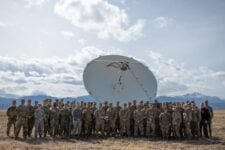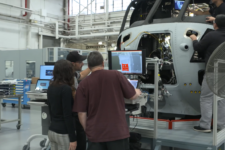
Washington: Thank god the debt deal is done. At least that threat to our national security appears to have been nullified.
One of the sacrificial lambs appears to have been the defense budget but, as with so much surrounding the negotiations of the last few months, little is known of the details.
The White House did release a Fact Sheet soon after the president spoke.
It included one tidbit. The deal includes savings of $350 billion from the base budget: “… the First Defense Cut Since the 1990s: The deal puts us on track to cut $350 billion from the defense budget over 10 years. These reductions will be implemented based on the outcome of a review of our missions, roles, and capabilities that will reflect the President’s commitment to protecting our national security.
Here are the questions that arise, so far.
- How much will be cut and over what period of time;
- Is a second round of cuts unavoidable when the so-called Super Congress Gang of Six meets;
- Will the Overseas Contingency Operations funds count toward the cuts, as was discussed earlier in the negotiations. That might account for a substantial part of whatever cuts are proposed;
The last details on a plan — offered by Senate Majority Leader Harry Reid and House Speaker John Boehner — indicated Pentagon and other national security spending would be capped for two years at $1.2 trillion. Also, the OCO funding would be counted as $1 trillion in savings as the wars in Iraq and Afghanistan are wound up. If that is the shape of things then the Pentagon may escape really deep cuts that might impair operations and limit acquisition and development.
Remember that Obama has already pledged $400 billion (but it’s probably already $500 billion at the pre-decisional level) in cuts but over a long period.
The other detail offered in the Fact Sheet is that if the Gang of Six Super Congress fails to make the necessary cuts then, “the deal would automatically add nearly $500 billion in defense cuts on top of cuts already made, and, at the same time, it would cut critical programs like infrastructure or education.”
(If our readers know details, we look forward to hearing from you. As always, no fingerprints.)
Air Force picks Anduril, General Atomics for next round of CCA work
The two vendors emerged successful from an original pool of five and are expected to carry their drone designs through a prototyping phase that will build and test aircraft.


























